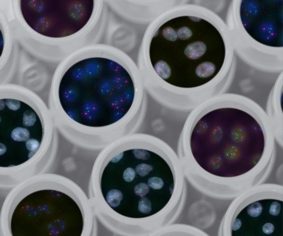We use own and third-party cookies to measure the website’s activity with the purpose of implementing improvements based on analysing the data on how users use the service.

The path to personalised medicine is moving forward inevitably. Several international research centres are working in this direction, and we have found an initiative of the Institute for Research in Biomedicine (IRB) in Barcelona very interesting. This centre has developed Boost DM, a method based on automated learning, with the objective of analysing and evaluating the role of all the cancer gene mutations. At present, oncologists can decide the best treatment for a cancer patient based on the tumour’s DNA by identifying the mutations that may have an impact on the cancer progression or on its response to the treatment.
However, the role of most mutations is still unknown. This line of research is trying to shed some light on the knowledge of these mutations using databases of patient tumours and research centres around the world. This method learns from the observed mutations and creates models that estimate the contribution of all potential mutations to a gene in the development of certain types of cancer.
IRB’s team is currently working on the mutational profiles of 28,000 genomes analysed from 66 different types of cancer. As the data of sequenced tumours available increase, we will be able to get models for all cancer genes. The goal of the researchers, led by Dr. López-Bigas, head of the Genomic Biomedical Lab, is to accelerate cancer research and offer tools to oncologists so that they can choose the best treatment for each patient. The results of Boost DM have been published on Nature and are a breakthrough in the use of genomic data for cancer research and treatment.